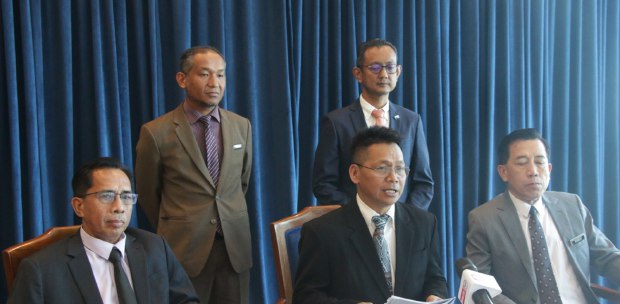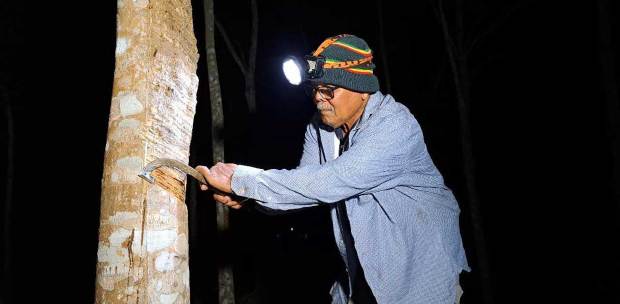I read with interest an article by NST columnist Salleh Buang, titled “Who sheds tears for our rubber tappers?” (NST, Jan 7), which effectively articulates the plight facing the nation’s rubber tappers.
True to his style, the writer painted a moving picture of life as a rubber tapper. Coming from a rubber-tapping family himself, he is familiar with the sentiments. There have been occasions when tapping rubber could support a fairly comfortable living. However, most of the time, the opposite is true. Rubber tappers are often at the mercy of world rubber prices. When world prices are good, as they were four or five years ago, rubber tappers are the envy of farmers, but when prices are down, they can be hit hard. And, rubber prices have been at historic lows for some time now.
For the last two or three years, rubber tappers have lived through trying times because of depressed rubber prices. They have been hit hard by prices that remain persistently low. And, judging by the latest developments in the global economy, there does not seem to be much light at the end of the tunnel.
Most commodities face a similar predicament. Oversupply and lacklustre demand are mostly to blame for low prices. China, which has been anchoring the bulk of growth in world demand in recent years, is in economic malaise. The same is true for Europe.
On the supply side, Thailand, which is the world’s leading natural rubber producer, has a large stock overhang. The latest news from Thailand is that it is seriously contemplating diverting much of excess inventories for use in road construction. Rubberised roads have become fashionable lately. Studies have shown that by incorporating rubber in roads, their durability improves. There is also less maintenance needed. If such a practice gains traction worldwide, it can be another channel to boost demand and help support prices.
While rubber tappers languish in poverty, the same is not true for downstream manufacturing industries, which the natural rubber produced by rubber tappers has created.
Take the glove manufacturing industry, for example. The latest we hear is that the nation’s top glove company is embarking on bigger expansion plans. It is a clear testimony to the fact that it is very profitable indeed. Despite the slowing global economy, the export of gloves has not witnessed much decline. This is because gloves find their biggest demand in the health sector. Like they say, apart from food, the health business is recession-proof.
Rubber is not the only material that rubber smallholders supply to the manufacturing sector. Another important item is rubberwood. And, the latest news is that rubberwood furniture are selling well in the export business. But, such manufacturers should realise that without the natural rubber and rubberwood that smallholders supply, they will have problems sustaining their businesses.
There must be a workable mechanism, where profitable downstream manufacturers help sustain the supply of raw material. During times of depressed rubber prices, rubber tappers who are suffering can do with support from manufacturers. It is like the profitable part of the value chain subsidising the loss-making part.
The truth is, the government has, for years, been trying to create such synergistic linkages in the rubber industry. Many entities have been established to help support rubber tappers. Organisations like Risda, Mardec, Felda and MRB have been established for the purpose. They have been tasked with creating rubber-based industries that will add value to the raw material. And, the profits they make are to be ploughed back to support growing by rubber smallholders.
Unfortunately, such initiatives have not truly delivered. Instead, privately run manufacturers are the ones that make it happen. We need to find out why the government’s noble intentions have not materialised. With the right remedial action, there is no reason why government initiatives cannot be a success. Then, we won’t have any more tears from rubber tappers!
The writer is a fellow at the Academy of Sciences Malaysia






